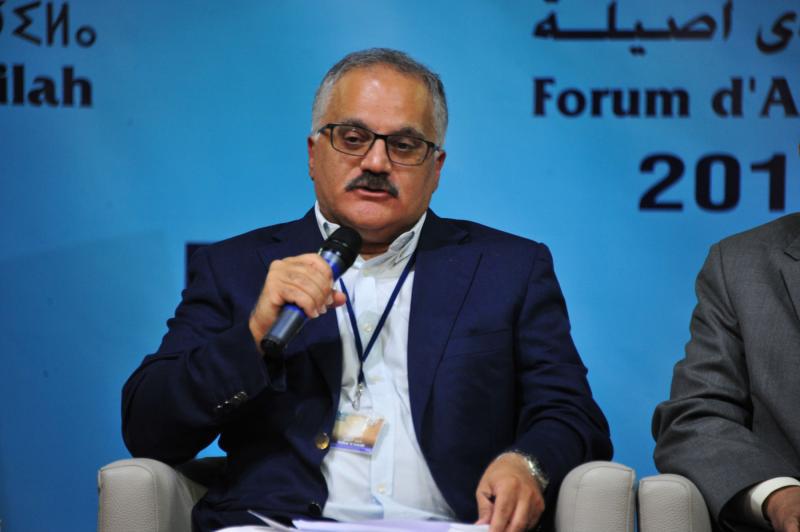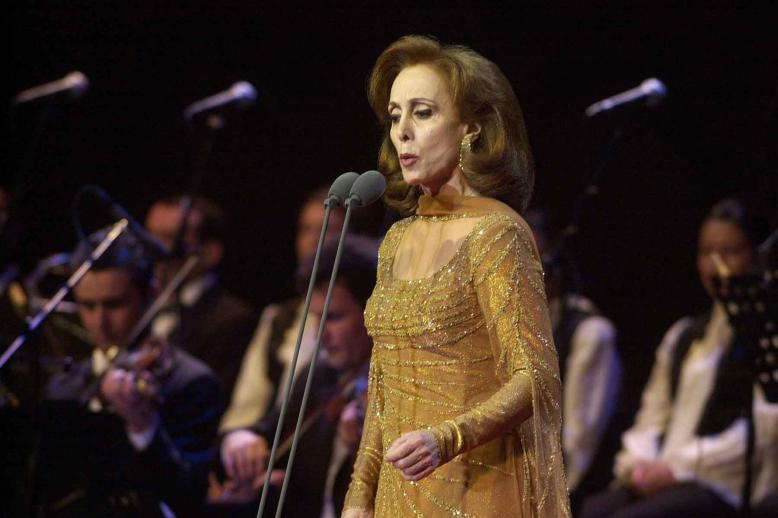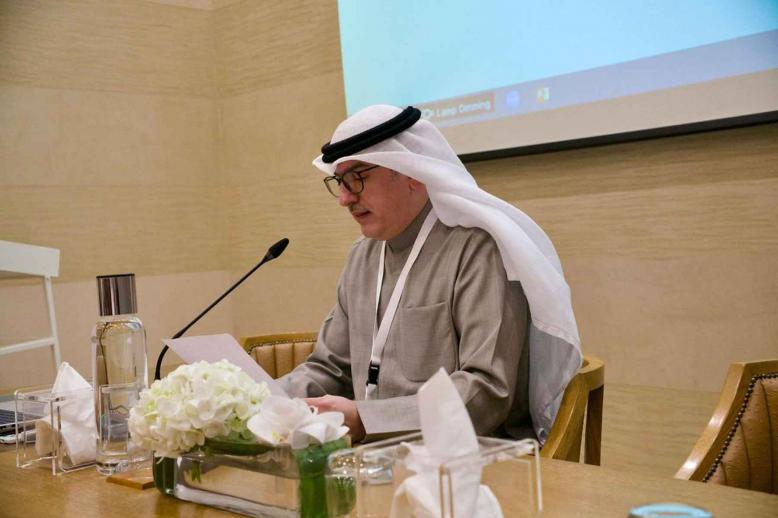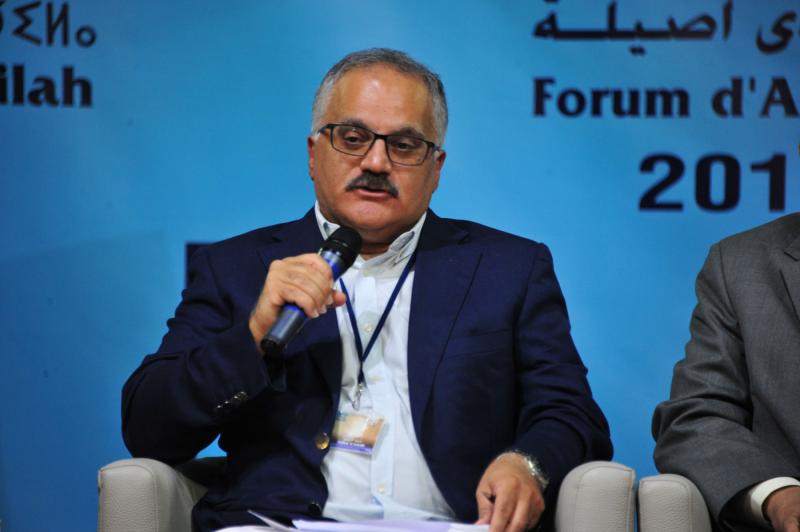Forum experts say terrorism can be fought through education, better use of technology
ASILAH, Morocco - Terrorism in Muslim societies can be confronted by overhauling religious education curricula, better use of media and digital technology to spread an Islam of tolerance and a deeper understanding of the Quran, international experts said.
Secretary-General of the Asilah Forum Foundation Mohamed Benaissa, opening a symposium on religious thought and its relation to terrorism, said the most horrific crimes had been perpetrated in the name of religions that have been victims of distortion and manipulation.
“It is in the name of religion that devastating wars have bloodied the world, whole nations and peoples have suffered from genocide and oppositions have been gagged. It is not the fault of religion but of the way in which it is explained and understood,” said Benaissa.
Radwan el-Sayed, professor of Islamic studies at the Lebanese University in Beirut, said Islamists who were oppressed in Arab prisons, especially in Egypt, were divided into two currents: one for using violence to establish a state based on sharia and one that opted for political debate, as happened in Tunisia and Morocco after the “Arab spring.”
Sayed said the violent current that emerged in the 1970s in Egypt and Syria found support from the United States, which used it in Afghanistan against the Soviet Union, and from the middle class, which was against the Egyptian military-led regime.
He noted that out of the violent Islamist current evolved the Islamic State (ISIS).
Mohamed Ghanem Rumaihi, professor of political and social sciences in Kuwait, said the Muslim world needed a modern matrix of jurisprudence to fight extremist ideologies and keep up with international developments.
Hussain Shaban, an Iraqi writer, said the world was suffering from fanaticism, fundamentalism and terrorism. “Terrorism cannot occur without fanaticism. Terrorism strikes randomly to create fear among people and societies for political goals,” he said.
No international agreement has clearly defined terrorism because of political differences on its context, Shaban said.
He emphasised two dangerous international resolutions after the September 11, 2001, attacks on the United States that gave the great powers the right to intervene in other countries under the umbrella threat of terror.
He explained that Arab countries had been victims of terrorism while, at the same time, were accused of practising it. He called for a unified strategy to fight that scourge.
Abdallah Yusuf al-Ghanim, director of the Centre for Research and Studies of Kuwait, said the strengthening of religious law based on peace and diversity can be achieved through reformed education and sound upbringing based on co-existence and respect.
Ghanim stressed the necessity to train teachers to create a new generation that supports dialogue and tolerance of others, no matter their background or religious affiliations.
He suggested an educational programme dedicated to raising awareness among students about the dangers of terror groups’ and preachers’ ideologies on social networks.
Rachida Benmassaoud, a professor at Mohammed V University of Agdal in Rabat, echoed Ghanim’s remarks, saying the culture of peace, tolerance and difference must be bolstered in Arab societies to thwart the culture of violence and terrorism.
Haitham El-Zobaidi, the publisher of The Arab Weekly, said the advent of social media had accelerated the pace of extremist religious speech, which classic media outlets were late to counter.
“We have to think of an intellectual and cultural speech as a substitute speech. I think we should learn from Europe where societies have dissociated themselves from the Church and focused on the ethical aspect of social interaction,” said Zobaidi. “Imagine if Europe had continued in the religious debate to this day, it wouldn’t be what it is now.”
He called for a halt to the circle of discussing the various extremist currents while civil society needs new ideas to shape its ethics.
Abdulaziz al-Sabeel, secretary-general of the King Faisal International Prize, said brainwashed Arab youth cannot be blamed for watching extremist preachers who tell them that “the way between you and the virgins in Paradise is the suicide belt.”
Sabeel said young people were being influenced by the most sought hashtags and fake accounts created by extremist groups and individuals on social media.
Fadwa Benamer, a columnist for Al-Wasat newspaper in Bahrain, said religious media with chaotic fatwas and threatening language created religious speech that incites hatred, violence and terrorism.
Benamer denied that a lack of a proper education was a driving force behind acts of terror, referring to statistics that showed many terrorists have scientific university degrees.
Mohamed Abdelwahab Rafiqi, a researcher in Islamic studies in Morocco, said he could not agree more, citing the example of al-Qaeda leader Ayman al-Zawahiri, who is a doctor.
Rafiqi mentioned the case of Morocco, which decided in 2016 to review the contents of school books on religion that boosted extremism.
“When you call for change, you find a fierce opposition from both the radical movements and people as generations have been educated on these curricula,” said Rafiqi. “The result is that they will accuse you of infidelity.”
He urged a courageous approach to any attempt to change curricula in religious education to be commensurate with other educational subjects.
He also suggested the formation of a new jurisprudence, the dissemination of revolutionary ideas among young people and raising them up on the right way of dealing with Quranic texts that have been misinterpreted and exploited by fundamentalists to commit violence.
Saad Guerraoui is a regular contributor to The Arab Weekly on Maghreb issues.
This article was originally published in The Arab Weekly.







